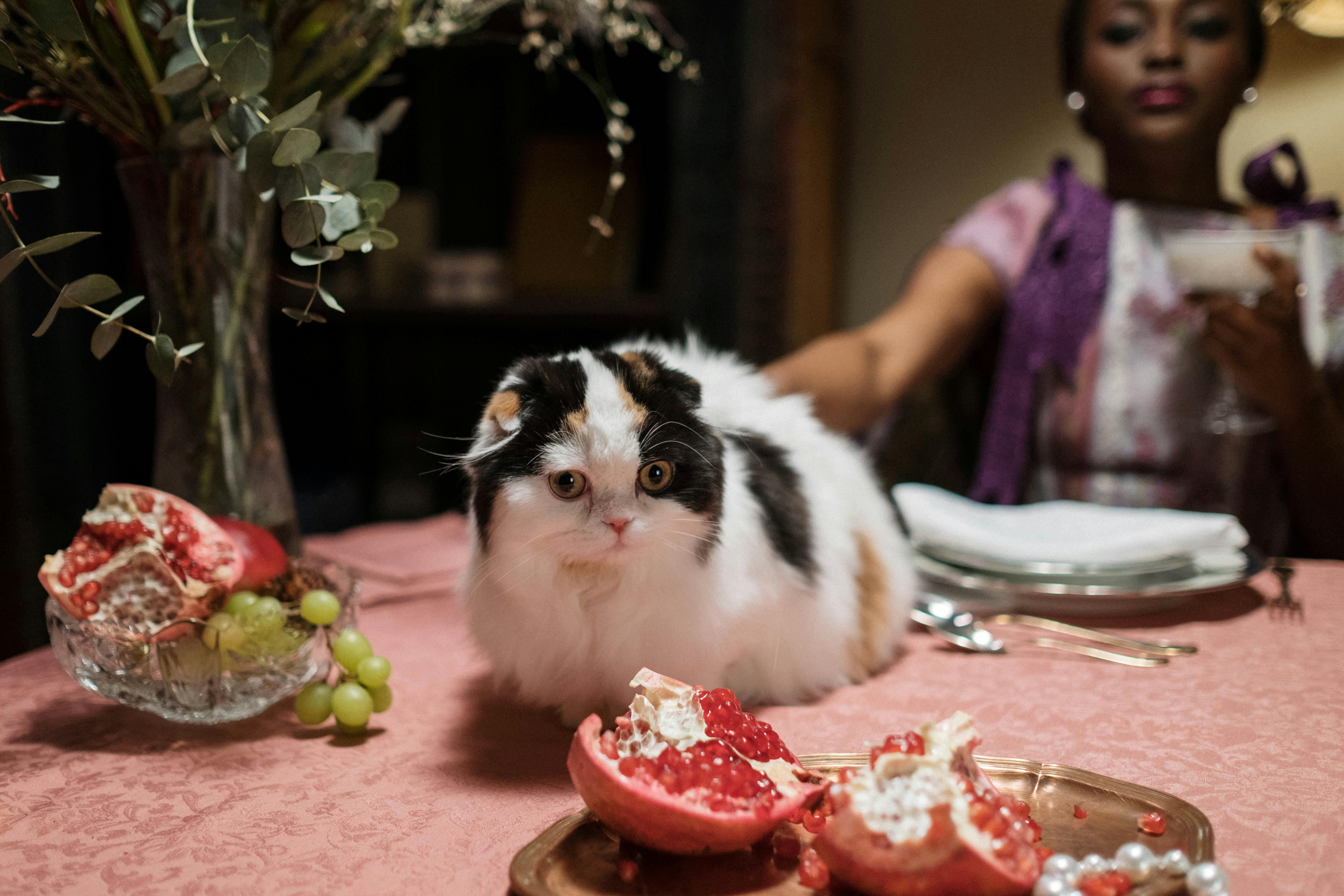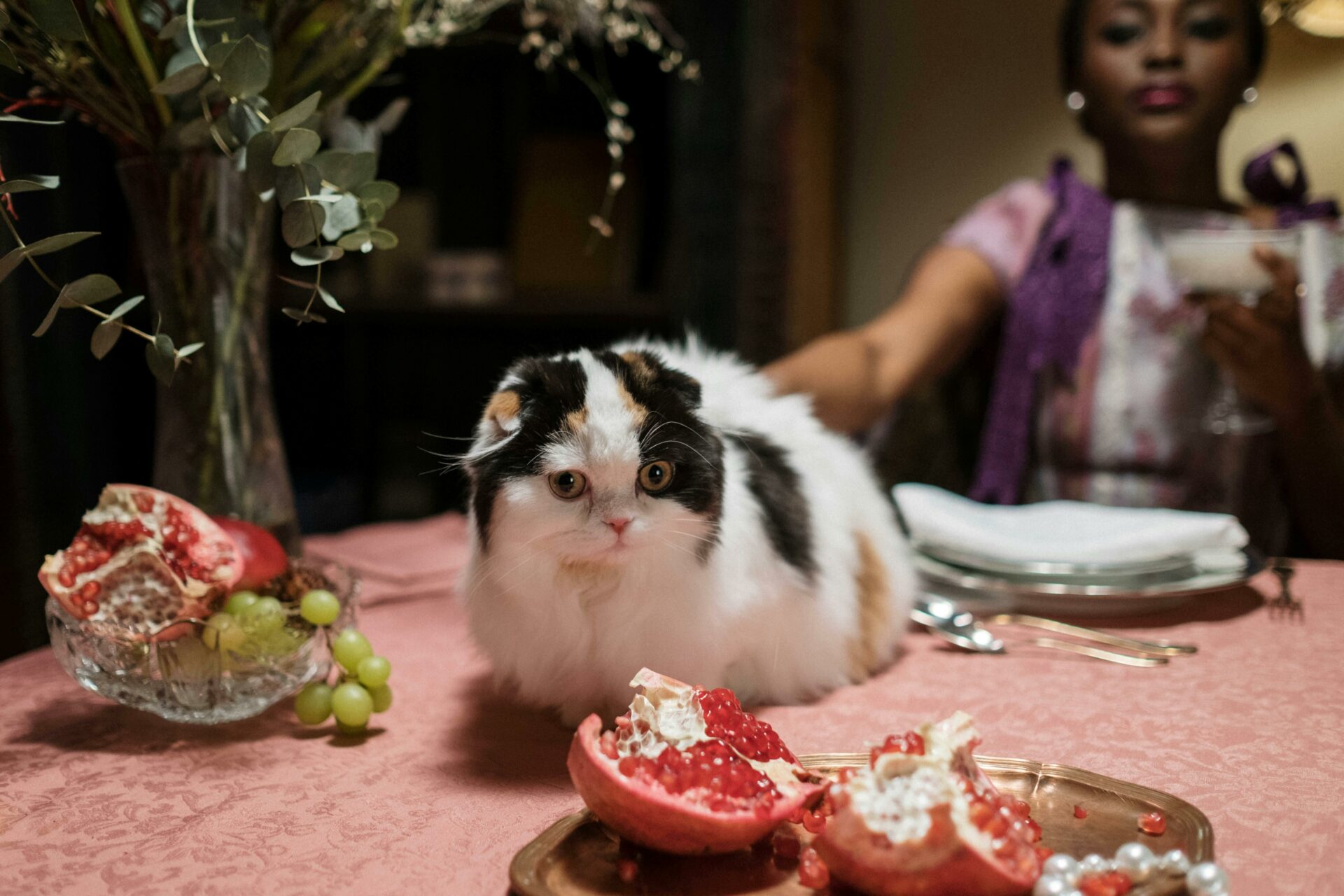Cats are often considered to be picky eaters, but that doesn’t mean they can’t enjoy a special treat of fruit now and then. While it’s important to remember that cats are obligate carnivores and need a diet made up largely of meat, some fruits can be a safe and nutritious snack for your furry feline friend. In this article, we’ll discuss which types of fruit is safe for cats to eat.Cats can safely eat certain fruits such as bananas, strawberries, and blueberries in very small amounts. However, other fruits like grapes, raisins, and citrus fruits should be avoided as they can be toxic to cats.
The Benefits of Fruits for Cats
Cats are obligate carnivores, meaning they rely on a diet of meat and animal proteins to survive. However, cats can also benefit from eating certain types of fruits. Fruits can provide cats with essential vitamins and minerals, while adding variety to their diet. Not all fruits are safe for cats to consume, so it is important to research each fruit before offering it as a treat. Here are some of the benefits that fruits can provide for cats:
Vitamins and Minerals
Fruits contain many essential vitamins and minerals that cats need for proper health. Vitamin A is found in many fruits, including apricots and melon, which helps support healthy vision. Vitamin C is also found in several varieties of fruit, such as oranges and strawberries, which helps support the immune system. Additionally, fruits contain other important vitamins such as B6 and E which help support healthy skin and coat.
Fiber
Fiber is an important part of any cat’s diet as it helps keep their digestive system running smoothly. Many fruits are high in fiber which can help regulate a cat’s digestion and help prevent constipation or diarrhea. Apples, bananas, and pears are all excellent sources of fiber that can be added to a cat’s diet.
Hydration
Cats often have difficulty staying adequately hydrated due to their low thirst drive. Eating certain types of fruits can help increase a cat’s water intake as some fruits contain large amounts of water. Watermelon is especially beneficial due to its high water content along with its vitamin A content.
Overall, adding certain types of fruits into a cat’s diet can provide many benefits. Fruits offer essential vitamins and minerals that cats need for proper health along with fiber that helps aid digestion. Additionally, eating certain types of fruit can also help increase a cat’s water intake which helps keep them hydrated.
Types of Fruits That Are Safe for Cats
Cats are obligate carnivores, which means they need a diet that is based mainly on meat. However, cats can benefit from eating small amounts of certain fruits as part of a balanced diet. Some fruits can also have additional health benefits for cats, such as providing dietary fiber and helping to keep their digestive system healthy. But it’s important to make sure that any fruits you feed your cat are safe and appropriate for them to eat. Here are some of the best fruits that you can safely feed your cat:
Pumpkin: Pumpkin is packed with fiber and essential vitamins and minerals like potassium and Vitamin A. It can help with digestion and help to prevent hairballs in cats. Just make sure to use plain canned pumpkin (not the pie mix!).
Bananas: Bananas are full of potassium, magnesium, Vitamin C, and B vitamins. They’re also high in fiber, which makes them a great snack for cats who have constipation issues.
Apples: Apples are a good source of Vitamin A and C, as well as dietary fiber. They also contain pectin, which helps to support healthy digestion in cats. Just make sure to remove the seeds before feeding your cat an apple!
Blueberries: Blueberries are full of antioxidants that can help keep your cat’s immune system strong. They’re also high in fiber and Vitamin C, making them a great snack for cats who need some extra dietary fiber in their diet.
Watermelon: Watermelon is low in calories but full of essential vitamins and minerals like potassium and magnesium. It’s also a good source of dietary fiber, making it an ideal snack for cats who struggle with constipation or hairballs. Plus, it’s just plain fun for cats to eat!
How Much Fruit Can A Cat Eat?
Cats are known for their love of meat, but they can also enjoy the sweet taste of fruit. While it is not essential to a cat’s diet, adding some fruit to their regular meals can help provide them with additional vitamins and minerals. However, it is important to know how much fruit cats can eat in order to ensure that they get the proper nutrition.
Cats should only have a small amount of fruit in their diets due to the high sugar content. Too much sugar can lead to obesity and other health problems for cats, just as it does in humans. The best way to give your cat fruit is by offering them small amounts as treats or mixing it into their wet food. Some fruits that cats enjoy include melon, apples (without the seeds), banana slices, berries, and mango.
It is also important to note that some fruits can be toxic for cats if eaten in large amounts. Grapes and raisins have been known to cause kidney failure in cats if eaten in large amounts. Citrus fruits such as oranges and lemons are also not recommended for cats as they can upset their stomachs and cause indigestion. It is best to consult with your veterinarian before introducing any new foods into your cat’s diet.
Overall, feeding your cat small amounts of fruit as an occasional treat is perfectly fine. Just make sure you are aware of which fruits may be harmful or could have adverse effects on your cat’s health before giving them any new foods.
When feeding your cat fruit, always remember that moderation is key! Too much of anything can be bad for your pet’s health, so be sure to practice portion control when giving them any type of treat or snack.
Risks of Feeding Fruits to Cats
Cats are often thought of as carnivores, but they are actually omnivores, meaning they can and should eat a variety of foods. While cats don’t necessarily need fruits in their diet, adding them as an occasional treat can be beneficial. However, there are some risks associated with feeding a cat fruits that pet owners should be aware of.
Fruits contain sugar and other carbohydrates that cats do not need in their diets. Too much sugar can lead to weight gain, diabetes, and other health problems for cats. Therefore, it is important to give cats fruit only in moderation and as an occasional treat. Pet owners should also avoid giving cats sugary snacks such as dried fruit or canned fruit cocktail.
Some fruits are also acidic and may cause stomach upsets in cats. Examples of these include oranges, lemons, limes, and grapefruit. These citrus fruits should be avoided altogether or fed only in very small amounts to minimize the risk of digestive issues or other health problems for cats.
In addition, some fruits may contain toxins that can be dangerous for cats if ingested. For example, the pits of peaches contain cyanide which is toxic to both humans and animals alike if eaten in large quantities. The leaves on certain types of fruit trees also contain toxins that can cause serious health problems for cats if ingested in large amounts. Pet owners should always check with their veterinarian before feeding any type of fruit to their cat to ensure its safety.
As long as pet owners feed their cat fruits in moderation and avoid giving them any potentially dangerous fruits or snacks containing added sugars or artificial sweeteners, there is no reason why they shouldn’t enjoy the occasional treat. Fruits provide many vitamins and minerals that are beneficial for a cat’s overall health such as Vitamin C which helps boost a cat’s immune system and fight off disease-causing bacteria and viruses more effectively. They also provide fiber which helps keep the digestive system running smoothly and aids digestion more efficiently than other types of food sources such as grains or meat-based proteins alone can provide.
Overall, feeding a cat an occasional piece of fruit can be beneficial but pet owners need to pay special attention to the type of fruit they offer their cat as well as how much they give them at one time in order to ensure its safety and well-being.

Foods to Avoid When Feeding Fruits to Cats
Cats can actually benefit from eating a variety of fresh fruits, as long as it is done in moderation. However, there are some fruits that cats should avoid, as they can be toxic or cause digestive problems. These include grapes and raisins, which can cause kidney failure in cats. Citrus fruits, such as oranges and lemons, can also irritate a cat’s digestive system and lead to vomiting or diarrhea. Apples should be avoided due to their high sugar content, while avocados contain a toxin called persin that can be harmful for cats if ingested in large amounts.
In addition, any fruit containing pits or seeds should not be fed to cats, as these can contain toxins that may cause intestinal obstruction or other serious health problems. Other fruits to avoid include pineapple and mango, which are both high in sugar and may cause an upset stomach. In order to keep your cat safe, it is important to only feed them fresh fruits that are free from any pesticides or other chemicals. It is also important to ensure that the fruit is cut up into small pieces before being served to the cat.
Finally, it is important to remember that all treats for cats should be given in moderation and used only as occasional snacks. Too much fruit can cause obesity and other health issues in cats even if it is considered safe for them to eat.
The Best Way To Serve Fruit To Your Cat
Serving fruit to your cat can be a great way to give them some added nutrition and variety in their diet. However, it is important to make sure that you are serving the right type of fruit and that it is being prepared properly. Cats are obligate carnivores, so they do not need a lot of fruits and vegetables in their diet, but there are some healthy options that can provide them with some additional nutrition. Here are a few tips on the best way to serve fruit to your cat.
First off, make sure you are only serving fruits that are safe for cats. Some of the most common fruits that cats can eat safely include apples, blueberries, cranberries, kiwis, mangoes, melons, papayas, peaches, pears and strawberries. When selecting fruit for your cat make sure you choose fresh fruits that have no added sugar or preservatives.
Second, when preparing the fruit for your cat it is important to cut it into small pieces so it is easier for them to eat. Cats have very small mouths and cannot chew large pieces of food like humans can. Make sure all the pieces are roughly the same size so your cat does not choke on any larger chunks of food.
Finally, when feeding your cat fruit it is important to remember that moderation is key. Fruits should only be given as an occasional treat and should not replace regular meals. Too much fruit can cause gastrointestinal upset in cats due to its high sugar content so it is best served in small amounts as part of a balanced diet.
By following these simple tips you can ensure that you are serving your cat the right type of fruit in the proper amounts for optimal nutrition and health benefits.
Can Cats Eat Fruit?
Yes, cats can eat fruit. However, it is important to make sure that the fruit is given in small amounts and only occasionally. While some cats may enjoy a piece of fruit as a treat, it should not be offered as a primary source of nutrition. Fruits should also be given in moderation as some fruits contain sugar which can cause gastrointestinal upset in cats.
What Types of Fruit Can Cats Eat?
The best types of fruit for cats are those that are low in sugar such as apples, pears, mangoes, and kiwi. These fruits can be diced or chopped and served as a treat or mixed into wet food for added flavor and nutrition. Bananas and strawberries can also be offered to cats but should only be given in small amounts due to their higher sugar content.
Are There Any Fruits That Cats Should Avoid?
Cats should avoid citrus fruits such as oranges, lemons, and limes as these can cause digestive upset due to their high acidity. Grapes and raisins are also toxic to cats and should never be offered. Additionally, dried fruits such as prunes or dates should not be given as they contain higher levels of sugar which can cause gastrointestinal issues.
Are There Any Benefits to Feeding Fruit To Cats?
Fruit is a great source of vitamins and minerals that can help support your cat’s overall health. Apples are rich in Vitamin A which helps support healthy vision while pears provide Vitamin C which helps support the immune system. Fruits can also be used to make homemade treats that are healthier than store-bought treats.

Conclusion
Ultimately, cats can enjoy many types of fruit as part of a balanced diet. While some fruits may not be suitable for cats to eat due to their high sugar content or other reasons, there are plenty of fruits that are safe for cats to enjoy. Apples, bananas, strawberries, watermelon, mangoes, and blueberries are all safe options that can provide cats with essential nutrients while also providing a tasty treat.
When feeding fruit to cats, it is important to remember that moderation is key. Too much fruit can cause digestive issues due to the high fiber content found in many types of fruit. Additionally, some types of fruit should be avoided altogether because they can be toxic or dangerous for cats to consume.
Overall, when given in moderation as part of a balanced diet, many types of fruit are safe for cats to enjoy. By doing research and consulting with your veterinarian about which fruits your cat can eat safely, you can ensure that your feline friend stays healthy and happy for years to come.



